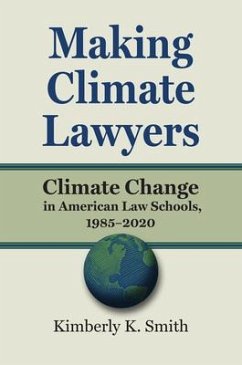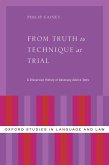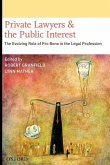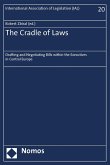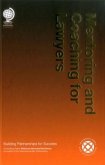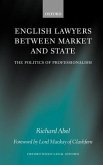Why did it take so long for American law schools to start teaching about climate change? Although most environmental law professors were aware of climate change by 1990, it took nearly fifteen years for them to incorporate the topic into their curriculum. In her innovative new work, Kimberly K. Smith explores how American environmental law professors have addressed climate change, identifying the barriers they faced, how they overcame them, and how they created "climate law" as a domain of legal specialization. Making Climate Lawyers explores the history of why American law schools were resistant to teaching about climate change and how that changed over the course of a forty-year period, resulting in law schools across the country incorporating climate change into their curricula, with many even establishing centers on the environment. Smith challenges dominant explanations of why the United States was slow to develop climate policy: it wasn't just political opposition or short-sightedness. Creating climate legal professionals required changing the fundamentals of legal education. Based on dozens of interviews with faculty and students, Making Climate Lawyers fills a gap in the literature on the intellectual history of climate change, most of which focuses on the history of climate science. Smith focuses instead on how the climate problem fits (or doesn't fit) into the structure of American law. She uses this story as a lens through which to understand both the transformation of legal education since the 1980s and the nature of climate change as a policy problem.
Hinweis: Dieser Artikel kann nur an eine deutsche Lieferadresse ausgeliefert werden.
Hinweis: Dieser Artikel kann nur an eine deutsche Lieferadresse ausgeliefert werden.

